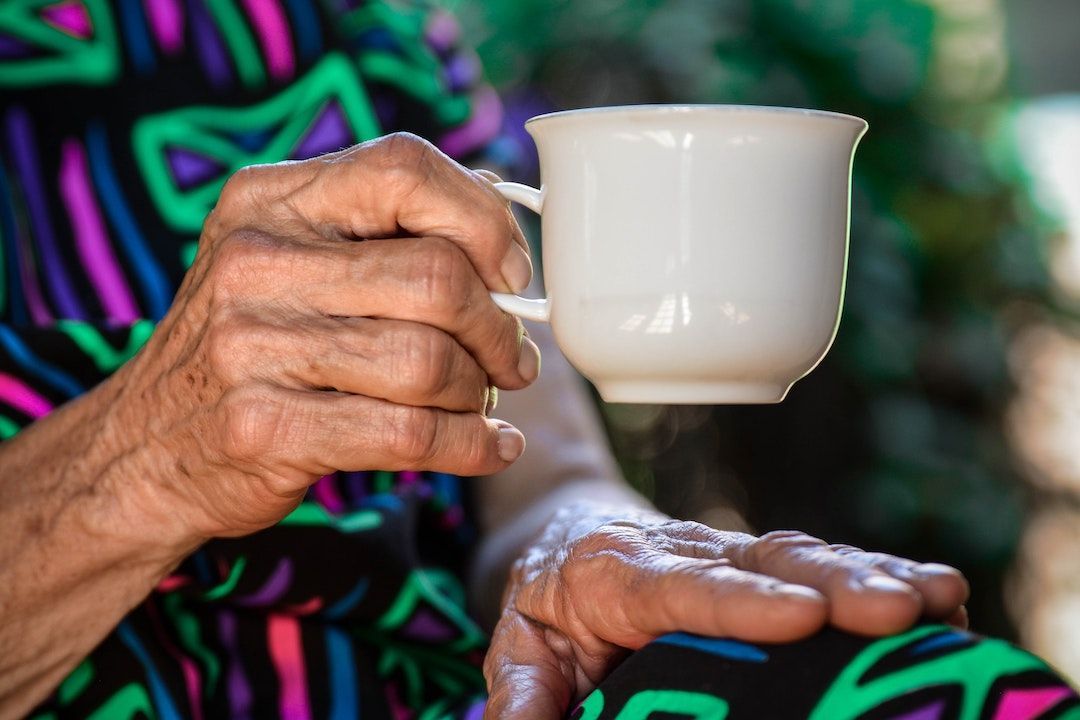Assisted Living vs Skilled Nursing: What's the Difference?
Discover the important aspects of assisted living and skilled nursing. Seniorly explores the key differences between them and what sets them apart.

If you or a family member is caring for a loved one who can no longer receive the care they need at home, there are two care options that you've likely considered: skilled nursing facilities (also sometimes known as nursing homes) and assisted living facilities.
But in a world of seemingly endless options for senior care, how do you choose the right type of senior living community?
Assisted living vs skilled nursing: breaking down the differences
The best way to choose between assisted living and skilled nursing is to clearly understand your care needs and educate yourself on the differences between the two types of communities.
The truth is that both senior living options are designed for those who can no longer live safely on their own or who need constant care. Yet, there are some crucial differences that may make one a better fit for you or your loved one.
The main difference between the two lies in care itself: the qualifications of who is providing the care, the type of care that's provided, and the level of care and acuity. While assisted living communities encourage independence and provide less medical care, skilled nursing communities are more restrictive but provide more medically intensive care.
At the end of the day, care needs will be the biggest driver in determining which type of community is most appropriate. Let's take a deeper look at the basics.
What is a skilled nursing home?

In this article, we're going to refer to skilled nursing facilities (SNF) and nursing homes interchangeably. If you're in the process of researching, you may even see some of these communities described as "convalescent homes".
A skilled nursing facility offers 24-hour medical care and supervision by a licensed nurse (LPN), registered nurse (RN), and health care worker, and includes medical treatments and monitoring. Support can range from minor nursing assistance to more extensive medical care. These professionals may provide medical assistance with anything from wound care and injections to catheter placement and intravenous therapy.
A skilled nursing home may also include services from other medical professionals, such as speech therapists, respiratory professionals, physical therapists, and occupational therapists. These communities offer both short-term or long-term care for seniors recovering from an illness or injury and for those with chronic conditions.
Additionally, residents of a skilled nursing home typically have a semi-private room but share common areas such as dining areas and activity rooms. Meals are usually served in the common dining area, but for residents who are too ill or incapacitated to make it to the dining area, meals can be brought to their rooms.
Lastly, there are usually a variety of scheduled activities each day, such as exercise classes, arts and crafts, and social gatherings. For residents who cannot make it to the group activities, there are hobbies that can be brought to their rooms, such as books, magazines, and puzzles.
Who can benefit from a skilled nursing home?
Nursing homes offer the most intensive level of care. They provide rehabilitative services, skilled nursing services, and therapy services to help patients live more independently until they are able to return back to their previous living environment. For those with long-term needs, nursing homes are also a wonderful long-term care solution.
Skilled nursing care is best for those who require more intense medical services, care, medication administration and supervision. These nursing homes offer 24-hour care and are supervised by licensed nurses. Typically, seniors who receive skilled nursing care are those recovering from an illness or injury, have been discharged from a hospital stay, or those with chronic health conditions who need help with activities of daily living.
When to consider a move to a skilled nursing home
There are many factors to consider when deciphering whether or not a skilled nursing home is the best option for your loved one. With this in mind, skilled nursing may be an option if you or a loved one:
- Needs long-term care or short-term care with rehabilitation following an injury or illness
- Has complex medical needs that require monitoring and treatment by licensed nurses, such as a chronic illness
- Has significant mobility concerns
- Is unable to feed themselves independently
- Has significant rehabilitation needs
What is assisted living?

Now let's take a look at assisted living as a point of comparison.
Assisted living communities are a type of residential care for older adults who need extra support for daily tasks. Sometimes referred to as personal care homes or even board and care home, these residential facilities are a wonderful option for those who are no longer able to live on their own.
Assisted living communities provide support with activities of daily living (ADLs), like dressing, bathing, toileting, eating, and medication management. An assisted living facility offers room and board, full-time 24-hour (non-medical) care, and basic services like housekeeping, laundry services, social engagement, recreational activities, wellness programs, transportation and outings, meals, and more. However, assisted living doesn't provide the type of medical care that is offered to nursing home residents.
Who can benefit from assisted living?
Assisted living communities tend to be better for more active seniors, older adults in relatively good health, or those who want or need more socialization and engagement. Assisted living is a great place for seniors who want to maintain their independence and still have the companionship of others.
Moreover, the inviting dining rooms and large common areas in assisted living facilities offer an opportunity for socialization that can help residents feel like they're part of their own retirement community. Most communities offer both private rooms and shared rooms If medical needs are not acute, assisted living is a great option for those seeking a supported approach to more independent living.
If you're thinking about assisted living for your aging loved one, here are a few things to consider. Just about every assisted living community is designed with the goal of allowing independence as long as possible while still providing security and care when needed; this may be an option if they fit any or all of these descriptions:
- Needs help with ADLs like bathing and dressing
- Has chronic health problems but isn’t ready for a skilled nursing community
- Needs more care than can be provided at home
- Wants to live in a community setting with social activities and events
- Looking for a maintenance-free lifestyle
- Currently in good health but may need more help in the near future
Does assisted living offer memory care services?
Most assisted living facilities offer a number of services to assisted living residents and sometimes even those suffering from Alzheimer’s or dementia.
Some assisted living facilities have memory care units where staff members receive additional training and work in specialized areas emphasizing memory loss and cognitive care.
Differences between assisted living and skilled nursing

While both are assisted living and nursing homes are residential care facilities that offer round-the-clock care, an assisted living community will be less specialized in terms of human services and support, while nursing homes are better for those with chronic injuries or advanced medical issues. Nursing home care tends to have more services offered but comes at a higher median monthly cost.
Assisted living provides assistance with day to day tasks like :
- Medication management
- Meals and meal preparation
- Activities of daily living (ADLs) such as bathing, dressing, and eating
- Housekeeping
- Social activities
Skilled nursing offers all of the above and:
- Physical therapy, speech therapy, and/or occupational therapy
- Post-hospitalization rehabilitation services
- Ongoing palliative and preventative long-term care
- 24-hour care/7 days a week nursing care
- Can help with walking and standing
- More complex medical needs
A cost comparison: assisted living vs skilled nursing
Costs for assisted living and skilled nursing homes tend to be significant, and for good reason.
Assisted living communities typically offer a lower cost alternative compared to skilled nursing facilities, since residents do not need round-the-clock medical care. In contrast, skilled nursing facilities offer a higher level of care and supervision, including 24-hour medical services, rehabilitation, and complex treatment plans, resulting in higher overall costs.
According to the most recent Genworth Cost of Care Survey, the national average for assisted living was about $4500 per month, compared to about $9034 per month for skilled nursing. The cost difference is mainly driven by the increased care and staffing requirements. This higher degree of staff specialization tends to command higher average hourly wages, which is the main driver of the increase.
Find the perfect care
There is no one-size-fits-all answer to the question of whether assisted living or skilled nursing is the best option for your senior. The type of care that is right for a particular individual will depend on their specific needs and preferences.
In general, many assisted living communities are well suited for seniors who are still relatively independent and mobile, while skilled nursing communities are better equipped to provide the level of medical care and supervision that is often required by seniors who are recovering from illness and need rehabilitation.
Your loved one’s doctors can tell you what level of care they require, and the communities and facilities themselves will perform their own evaluations to ensure that your loved one will receive the proper care that they need.
Marlena del Hierro earned her Master of Arts degree in Gerontology from San Francisco State University and her Bachelor of Arts degree in Human Development from California State University. She also serves in an advisory capacity for Jukebox Health. Marlena is a vocal advocate for evolving the aging paradigm, and is a frequent contributor to public discussions about aging. She has served as a resource for media outlets like WGBH, FOX News, CNBC and the Today Show.
To learn more about Seniorly's editorial guidelines, click here.
Sign up for our Healthy Aging Handbook
Seniorly’s Senior Living advisors created a comprehensive handbook to help people age happily while ensuring they love where they live. Enter your email address below to receive your copy and learn more about Healthy Aging and Senior Living.*
*By submitting your email address above, you consent to receive occasional email communications from Seniorly, including educational content and tips, newsletters, and other relevant updates and offerings. You can unsubscribe at any time and we will never sell or distribute your email address to a third party. You can view our Privacy Policy here.
